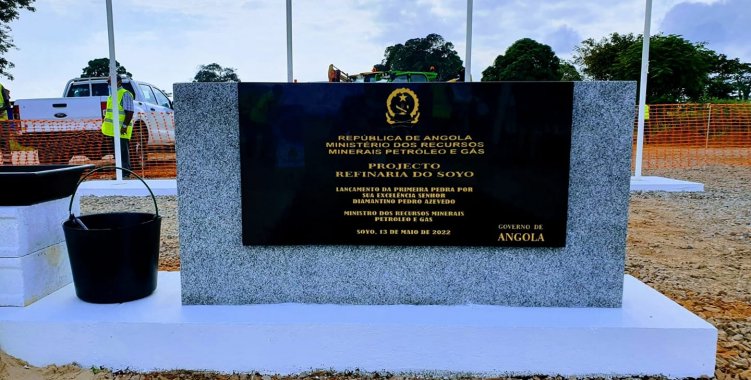According to the Minister of Mineral Resources, Oil and Gas, Diamantino Azevedo, the American company "is having great difficulty obtaining financing for the Soyo refinery project".
"Everything is done in terms of project and area, but the company is having difficulty obtaining financing. We gave the company a deadline and, if it cannot, we will also have to terminate this contract and look for alternatives", said Diamantino Azevedo during the parliamentary hearing held by the Economy and Finance Committee of the National Assembly.
The consortium led by Quanten won, in 2021, an international public tender for the construction of the Soyo refinery.
It is made up of four companies, three of which are North American (the leader of the consortium Quanten LLC, TGT INC and Aurum & Sharp LLC) and one Angolan (ATIS Nebest).
With a processing capacity of up to 100 thousand barrels of crude oil per day, construction of the Soyo refinery, valued at 3.5 billion dollars, was expected to be completed in 2025.
The project to be built southeast of the municipality of Soyo, oil province of Zaire, in an area of 712 hectares, was expected to employ more than 3000 people.
Regarding the Lobito refinery, with a production capacity of 280 thousand barrels per day, Diamantino Azevedo said that Sonangol continues to assume all construction costs and continues to look for a partner and shareholder for investment.
The holder of the Mineral Resources, Oil and Gas portfolio highlighted that a competition was held, but the proposals they received did not correspond to the authorities' expectations.
"The proposals did not please us, [they wanted] demands for collateral such as oil, so we are doing it ourselves, Sonangol is still spending all its own money, while we continue to look for financing and partners, but the construction continues and is going well advanced", said the minister.
The government official admitted that the prospect of completing the works, with the company now hired, which is executing the project, is four years, but depending on financing, stressing that the strategy is for Sonangol to ensure the construction of the longest components.
Regarding the Cabinda refinery, with a capacity for 60,000 barrels of oil/day, a private investment, the minister said that the perspective is that the first phase, for the production of 30,000 barrels/day, will come into operation in 2025.
Diamantino Azevedo said that several factors contributed to the delay of the work, such as, for example, the cancellation of the contract with the company that won the competition due to difficulties in implementing the project, the covid-19 pandemic and the increase in the prices of construction materials.
According to Diamantino Azevedo, Sonangol, the national oil company, is making some investments in the external component of refining, in the 'pipelines' for receiving and distributing the fuel.
"In this component, Sonangol has helped, but the project itself is private and Sonangol has a stake that is currently 10 percent, but which could be increased when we do some more work with investors," he said.
Angola produces around 20 percent of its internal fuel needs, with the other 80 percent being imported.
"With these refineries all ready – Soyo, Cabinda and Lobito – we will reach 420 thousand barrels, part of which is for sale. We will be able to satisfy our internal needs and have a surplus to sell, that is our objective", he declared.







